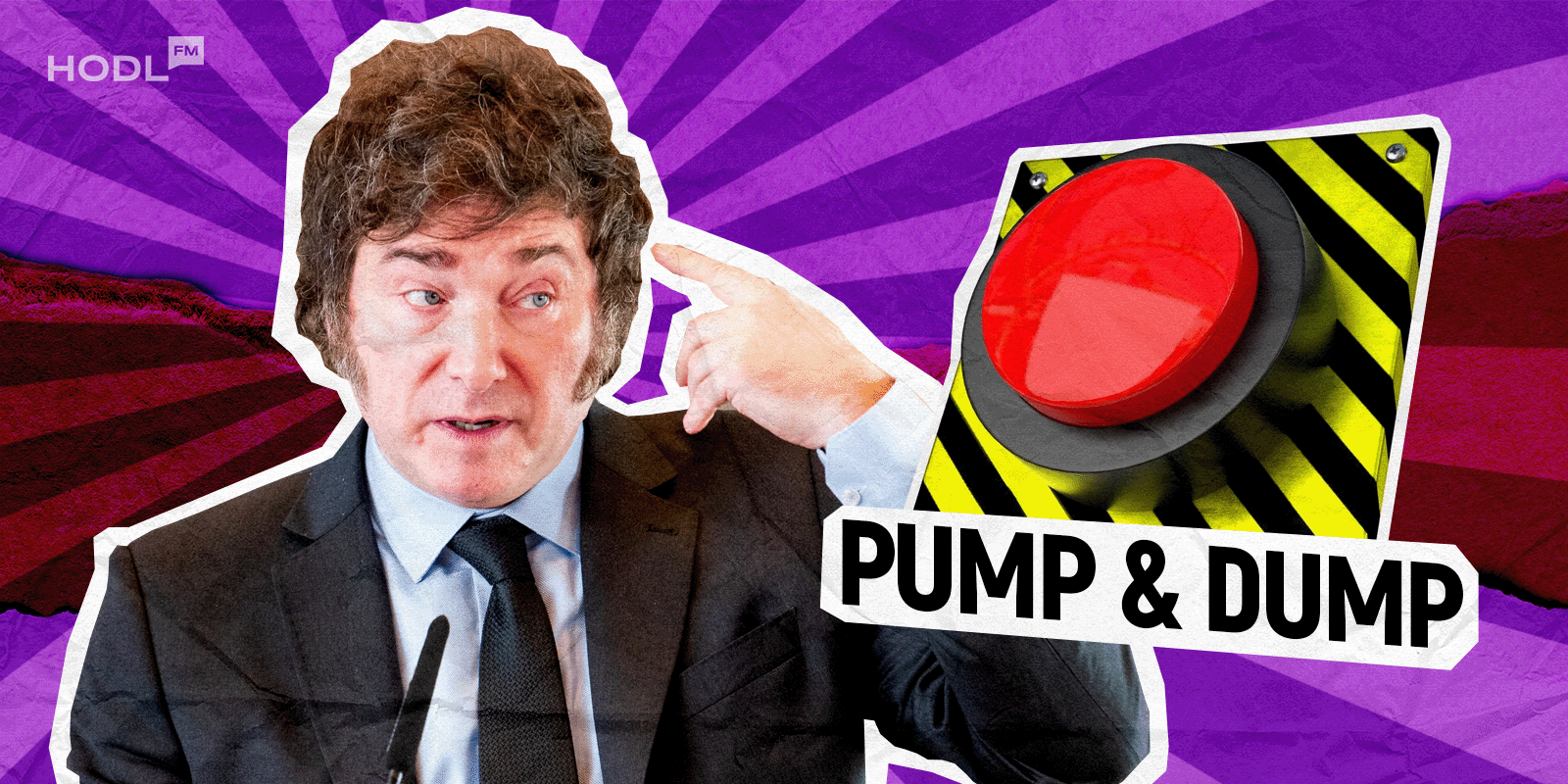Argentina’s President, Javier Milei, is facing mounting political and legal scrutiny after his public endorsement of the LIBRA meme coin led to a rapid surge and crash in its value. Lawmakers, critics, and financial watchdogs are now investigating whether Milei’s involvement constitutes a pump-and-dump scheme that resulted in financial losses for investors.
It all began with this post at 5:01 PM ET from Javier Milei.
— The Kobeissi Letter (@KobeissiLetter) February 15, 2025
As seen during President Trump's memecoin launch, the first hour was full of speculation:
Was this a hack or a real launch?
It turned out to be real as multiple other Argentinian politicians posted the news. pic.twitter.com/cL0ZQgxtCB
LIBRA Surge and Collapse: What Happened?
On February 14, Milei posted on X, claiming that LIBRA could benefit Argentina’s economy. His endorsement sparked an immediate price surge, pushing the token’s market capitalization beyond $4 billion in hours. However, it soon became clear that LIBRA lacked proper tokenomics, with its website having been created only hours before launch.
The president of Argentina Javier Milei just rugged CT with the launch of $LIBRA that briefly touched a $2billion market cap before crashing
— INTERN ✈️ ETHDenver (@Intern_SaharaAI) February 15, 2025
Imagine getting farmed by someone that couldn’t let go of their 2008 emo hair style🥴
pic.twitter.com/beSeeRWRjs
In the first three hours, insiders reportedly cashed out over $87 million, leading to a sudden crash. Blockchain analysis firm The Kobeissi Letter described it as a classic pump-and-dump scheme, where large holders liquidated massive amounts of LIBRA for profits, causing the token’s value to plummet.
Realizing the backlash, Milei quickly deleted his post and attempted to distance himself from the scandal. He later stated that he "was not aware of the details of the project" and ceased promoting it after learning more.
Hace unas horas publiqué un tweet, como tantas otras infinitas veces, apoyando un supuesto emprendimiento privado del que obviamente no tengo vinculación alguna.
— Javier Milei (@JMilei) February 15, 2025
No estaba interiorizado de los pormenores del proyecto y luego de haberme interiorizado decidí no seguir dándole…
Government Investigation and Political Fallout
Despite Milei’s backtracking, Argentina’s Anti-Corruption Office has launched an investigation into whether he or his associates engaged in financial misconduct. The government has also assembled a task force of financial, crypto, and anti-money laundering experts to scrutinize the LIBRA launch and its key players.
Adding to the controversy, reports indicate that Milei met with Hayden Mark Davis, a figure associated with KIP Protocol, which is linked to LIBRA’s infrastructure. Lawmakers now want to determine whether Milei had prior knowledge of the token’s launch and whether he personally benefited from the scheme.
La participación de Milei en un delito de estafa cripto es de enorme gravedad. Es un escándalo sin precedentes.
— Diputados UP (@Diputados_UxP) February 15, 2025
Nuestro bloque de diputados Nacionales decidió avanzar en la presentación de un pedido de Juicio Político contra el Presidente de la Nación.
The political backlash has been swift. Gabriela Estevez, an Argentine lawmaker, accused Milei of committing financial fraud, arguing that the LIBRA case follows a pattern seen in other speculative crypto schemes. Calls for impeachment have grown louder, with a faction of Congress filing a formal request to remove him from office.
Blockchain analysts at Bubblemaps have traced LIBRA’s origins back to the same team responsible for the Melania (MELANIA) memecoin, a token launched in January 2025 that experienced a similar pump-and-dump cycle.
1/ How $LIBRA was created by the same team behind MELANIA and other short-lived coins
— Bubblemaps (@bubblemaps) February 17, 2025
Featuring new onchain evidence
A thread with Coffeezilla 🧵 ↓ pic.twitter.com/gNwj97KapF
A Solana wallet known as 0xcEA reportedly sniped the launch of both Melania and LIBRA, earning millions in profitsbefore moving funds across multiple blockchain networks to obscure transactions. Analysts believe the same actors are behind several high-profile scam tokens, including a fake Robinhood (HOOD) coin that once hit a market cap of $120 million before collapsing.
The LIBRA scandal has intensified concerns over political figures endorsing volatile meme coins. Ethereum co-founder Vitalik Buterin previously warned that such endorsements could harm the legitimacy of the crypto industry. Since Donald Trump’s meme coin launch, opportunists have capitalized on political hype to create high-risk speculative assets. With investigations underway and impeachment threats looming, Milei’s political future hangs in the balance.

Disclaimer: All materials on this site are for informational purposes only. None of the material should be interpreted as investment advice. Please note that despite the nature of much of the material created and hosted on this website, HODL FM is not a financial reference resource and the opinions of authors and other contributors are their own and should not be taken as financial advice. If you require advice of this sort, HODL FM strongly recommends contacting a qualified industry professional.





